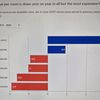25.2.2016 | 00:03
Repúblikanar viðhafa enn eitt af sínum stórskrítnu pólitísku leikritum, í kjölfar láts Antonin Scalia er var dómari við æðsta dómstól Bandaríkjanna
Höfum í huga að hin eðlilega málsmeðferð er sú - að sitjandi forseti Bandaríkjanna í kjölfar láts dómara við æðsta dómstól Bandaríkjanna, leggi fyrir Bandaríkjaþing formlega tillögu um kandidata um þann stól við æðsta dómsól Bandaríkjanna sem hefur losnað.
Síðan tekur þingið við því verki - þ.s. kandidat fær tækifæri að ræða við þingið, og síðan tekur þingið afstöðu til viðkomandi - hafnar eða samþykkir.
Þetta ferli oft tekur nokkurn tíma - gjarnan hafnar þingið fleiri en einum, en á endanum hefur hingað til alltaf þingi og forseta tekist að ná fram meirihluta um einhvern kandídat.
Senate Republicans Lose Their Minds on a Supreme Court Seat
Meirihluti Repúblikana í báðum þingdeildum, hefur tekið þá algerlega einstöku ákvörðun - að neita að ræða við nokkurn þann kandídat sem Obama leggur til!
Þeir segjast m.ö.o. ætla að setja embættisveitingu við æðsta dómstól Bandaríkjanna -- í djúpfrysti þangað til að nýr forseti hefur tekið við í janúar 2017.
Það eru enn 10-mánuðir eftir af kjörtímabili Obama.
Og því yfrið nægur tími til að afgreiða þessa embættisveitingu.
- En þ.e. eins og að þingmeirihluti Repúblikana hafi ákveðið, að hætta öllu samstarfi við forsetaembættið -- út restina af kjörtímailinu.
- Ég man ekki þess dæmi, að samskipti þings og Hvítahússins hafi náð sambærilegri lægð.
Senator Mitch McConnell of Kentucky...In a statement dripping with sarcasm, Mr. McConnell said that Mr. Obama “has every right to nominate someone,” and “even if doing so will inevitably plunge our nation into another bitter and avoidable struggle, that is his right. Even if he never expects that nominee to actually be confirmed but rather to wield as an electoral cudgel, that is his right.”
Þarna snýr Repúblikaninn málinu upp á Obama - að ef hann leggur fram tillögu um kandídat fyrir embætti dómara við æðsta dómstól Bandaríkjanna.
Sem skv. hefð og lögum er einmitt embættisskylda Obama - hvorki meira né minna.
Þá væri Obama að skapa kljúfa þjóðina.
- Það er auðvitað rétt -- að ef, sem sannarlega má reikna með að Obama leggi fyrir þingið tillögur um einstaklinga fyrir viðkomandi embætti, að þá auðvitað mun skapst -- fjölmiðlacirkus, ef Repúblikanar - þverneita að ræða við viðkomandi, án þess að gefa upp nokkra aðra ástæðu en þá, að þær ætli ekki ræða við nokkurn kandídat.
- En það má virkilega velta því fyrir sér -- hver lítur verr út.
En reikna má fastlega með því -- að Obama gæti þess að bjóða einungis upp á kandídata sem eru dómarar með langa starfsreynslu og með uppsafnaða virðingu í starfi.
Og að auki einstaklinga sem séu ekki -- augljósir vinstri menn.
Því hann mun láta á það reyna -- hvort Repúblikanar standa við það að neita að ræða við nokkurn kandídat.
Ef Obama þannig leggur til -- hvern virtan dómarann á fætum öðrum, einstaklinga ekki í neinum augljósum pólitískum tengslum við Demókrata --> Þá efa ég að Repúbliknar græði á þessu pólitískt.
Niðurstaða
Embættistíð Obama hefur einkennskt af margvíslegum og gjarnan yfirgengilegum pólitískum leikritum meirihluta Repúblikana - sem a.m.k. í 2-skipti héldu alríkinu í gíslingu út af svokölluðu -skuldaþaki.- Og þannig sköpuðu vangaveltur um það hvort að Repúblikanar ætluðu að ýta alríkinu út í tæknilegt greiðsluþrot.
Það var auðvitað háskaleikur með orðspor Bandaríkjanna -- að veði.
En Bandaríkjaþing hefði orðið algerlega að atlægi -- ef bandaríska alríkið hefði ekki getað greitt af skuldbindingum sínum, vegna neitunar meirihluta Repúblikana.
En það virðist a.m.k. öruggt, að þetta átti þátt í því að efla efnahagslega óvissu - á sama tíma og Bandaríkin voru að ganga í gegnum viðkvæmt efnahagslegt tímabil, og getur því hafa skaðað bandarískan efnahag.
Í ljósi nýjasta útspils meirihluta Repúblikana -- spyr maður sjálfan sig, hvað næst?
Á virkilega að viðhalda leikritinu -við hötum Obama- kjörtímabilið til enda?
Kv.
Flokkur: Utanríkismál/alþjóðamál | Facebook
Um bloggið
Einar Björn Bjarnason
Nýjustu færslur
- Trump getur hafa eyðilagt fyrir sjálfum sér: Dómsmálið gegn, ...
- Gæti 3ja heimsstyrrjöldin hafist á Indlandshafssvæðinu? Skv. ...
- Er samningur Trumps við Japan - er inniber 550 milljarða$ fjá...
- Hótel-bókanir í sumar, gefa vísbendingar um kjaraskerðingu al...
- Kjarnorkuáætlun Írana hefur líklega beðið stórtjón, fremur en...
- Netanyahu, virðist hafa hafið stríð við Íran - beinlínis til ...
- Trump ákveður að senda, Landgönguliða - til Los-Angeles! Kemu...
- Möguleiki að Úkraína hafi í djarfri árás á flugvelli sumir mö...
- Yfirlýsing Trumps um yfirvofandi 50% tolla á ESB lönd, afhjúp...
- Tollar Bandaríkjanna á Kína - líklega ca: 50%. Kína á Bandarí...
- Að það verður af hráefnasamningi Úkraínu og Bandaríkjanna - v...
- Margt bendi til yfirvofandi kreppu í Bandaríkjunum! Skv. áhug...
- Vaxandi líkur á að Trump, reki: Jerome Powell. Yfirmann Seðla...
- Gideon Rachman hjá Financial Times -- útskýrir af hverju, Ban...
- Trump undanskilur frá tollum á Kína -- snjallsíma, og nánast ...
Eldri færslur
2025
2024
2023
2022
2021
2020
2019
2018
2017
2016
2015
2014
2013
2012
2011
2010
2009
2008
Bloggvinir
-
 eyglohardar
eyglohardar
-
 bjornbjarnason
bjornbjarnason
-
 ekg
ekg
-
 bjarnihardar
bjarnihardar
-
 helgasigrun
helgasigrun
-
 hlini
hlini
-
 neytendatalsmadur
neytendatalsmadur
-
 bogason
bogason
-
 hallasigny
hallasigny
-
 ludvikjuliusson
ludvikjuliusson
-
 gvald
gvald
-
 thorsteinnhelgi
thorsteinnhelgi
-
 thorgud
thorgud
-
 smalinn
smalinn
-
 addabogga
addabogga
-
 agnarbragi
agnarbragi
-
 annabjorghjartardottir
annabjorghjartardottir
-
 annamargretb
annamargretb
-
 arnarholm
arnarholm
-
 arnorbld
arnorbld
-
 axelthor
axelthor
-
 arnith2
arnith2
-
 thjodarsalin
thjodarsalin
-
 formosus
formosus
-
 birgitta
birgitta
-
 bjarnijonsson
bjarnijonsson
-
 bjarnimax
bjarnimax
-
 westurfari
westurfari
-
 virtualdori
virtualdori
-
 bookiceland
bookiceland
-
 gattin
gattin
-
 davpal
davpal
-
 dingli
dingli
-
 doggpals
doggpals
-
 egill
egill
-
 jari
jari
-
 einarborgari
einarborgari
-
 einarsmaeli
einarsmaeli
-
 erlaei
erlaei
-
 ea
ea
-
 fannarh
fannarh
-
 fhg
fhg
-
 lillo
lillo
-
 gesturgudjonsson
gesturgudjonsson
-
 gillimann
gillimann
-
 bofs
bofs
-
 mummij
mummij
-
 gp
gp
-
 gudmbjo
gudmbjo
-
 hreinn23
hreinn23
-
 gudrunmagnea
gudrunmagnea
-
 gmaria
gmaria
-
 topplistinn
topplistinn
-
 skulablogg
skulablogg
-
 gustafskulason
gustafskulason
-
 hallurmagg
hallurmagg
-
 haddi9001
haddi9001
-
 harhar33
harhar33
-
 hl
hl
-
 diva73
diva73
-
 himmalingur
himmalingur
-
 hjaltisig
hjaltisig
-
 keli
keli
-
 fun
fun
-
 johanneliasson
johanneliasson
-
 jonsullenberger
jonsullenberger
-
 rabelai
rabelai
-
 jonl
jonl
-
 jonmagnusson
jonmagnusson
-
 jonvalurjensson
jonvalurjensson
-
 thjodarskutan
thjodarskutan
-
 gudspekifelagid
gudspekifelagid
-
 juliusbearsson
juliusbearsson
-
 ksh
ksh
-
 kristbjorg
kristbjorg
-
 kristinnp
kristinnp
-
 larahanna
larahanna
-
 leifurbjorn
leifurbjorn
-
 lifsrettur
lifsrettur
-
 wonderwoman
wonderwoman
-
 maggij
maggij
-
 elvira
elvira
-
 olafureliasson
olafureliasson
-
 olinathorv
olinathorv
-
 omarragnarsson
omarragnarsson
-
 ottarfelix
ottarfelix
-
 rafng
rafng
-
 raksig
raksig
-
 redlion
redlion
-
 salvor
salvor
-
 samstada-thjodar
samstada-thjodar
-
 fullvalda
fullvalda
-
 fullveldi
fullveldi
-
 logos
logos
-
 duddi9
duddi9
-
 sigingi
sigingi
-
 sjonsson
sjonsson
-
 sigurjons
sigurjons
-
 stjornlagathing
stjornlagathing
-
 athena
athena
-
 stefanbogi
stefanbogi
-
 lehamzdr
lehamzdr
-
 summi
summi
-
 tibsen
tibsen
-
 vala
vala
-
 valdimarjohannesson
valdimarjohannesson
-
 valgeirskagfjord
valgeirskagfjord
-
 vest1
vest1
-
 vignir-ari
vignir-ari
-
 vilhjalmurarnason
vilhjalmurarnason
-
 villidenni
villidenni
-
 thjodarheidur
thjodarheidur
-
 valli57
valli57
-
 tbs
tbs
-
 thorgunnl
thorgunnl
-
 thorsaari
thorsaari
-
 iceberg
iceberg
Heimsóknir
Flettingar
- Í dag (4.10.): 2
- Sl. sólarhring: 7
- Sl. viku: 373
- Frá upphafi: 871910
Annað
- Innlit í dag: 2
- Innlit sl. viku: 348
- Gestir í dag: 2
- IP-tölur í dag: 2
Uppfært á 3 mín. fresti.
Skýringar




Athugasemdir
Þetta er engin nýbóla að kandídat til Hæstaréttar USA fer ekki til meðferðar í dómsmálanefnd Efri deildar þingsins (senate) á kosningaári til forseta.
Bæði Obama og Biden hafa verið harðir meðmælendur að Hæstaréttar dómaraferill nýs dómara verði ekki gerður á forsetakosningarári.
Ég mundi álita að "What is good for the goose, is good for the grander" so to speak.
Kveðja frá Houston
Jóhann Kristinsson, 25.2.2016 kl. 21:07
Þá mættir þú nefna dæmi máli þínu til stuðnings - því ég man ekki með fljótlegum hætti dæmi þess 10 mánuðum fyrir kosningar, að það sé lokað á málsmeðferð fyrir útnefningar af þessu tagi.
Kv.
Einar Björn Bjarnason, 25.2.2016 kl. 23:42
Joe Biden in 1992: No nominations to the Supreme Court in an election year
Senate Republicans determined to block President Obama’s promised Supreme Court nominee embraced an unlikely ally Monday: Vice President Biden.
More precisely, they embraced a fourth-term Sen. Joseph R. Biden Jr. (D-Del.) who, while serving in 1992 as chairman of the Senate Judiciary Committee, delivered a sprawling, 90-minute floor address that included a call for halting action on Supreme Court nominees in an election year.
[[In 1992, Joe Biden called for an election-year blockade of Supreme Court nominations]]
Were there a vacancy, Biden argued, Bush should “not name a nominee until after the November election is completed,” and if he did, “the Senate Judiciary Committee should seriously consider not scheduling confirmation hearings on the nomination until after the political campaign season is over.”Biden delivered his remarks in late June, as the court approached the end of its term — the traditional season for retirement announcements — and as President George H.W. Bush waged an uphill campaign for a second term amid an economic slowdown and sinking approval ratings.
“Senate consideration of a nominee under these circumstances is not fair to the president, to the nominee, or to the Senate itself,” he continued. “Where the nation should be treated to a consideration of constitutional philosophy, all it will get in such circumstances is partisan bickering and political posturing from both parties and from both ends of Pennsylvania Avenue.”
Biden, as vice president, has called in recent days for the Senate to take up the nomination Obama promises to make to replace Justice Antonin Scalia, who was found dead Feb. 13 in Texas.
“To leave the seat vacant at this critical moment in American history is a little bit like saying, ‘God forbid something happen to the president and the vice president, we’re not going to fill the presidency for another year and a half,’ ” he told Minnesota Public Radio on Thursday.
Biden said Monday in a statement that the 1992 speech pertained to “a hypothetical vacancy” and that the excerpt Republicans highlighted was “not an accurate description of my views on the subject.”
“In the same statement critics are pointing to today, I urged the Senate and White House to work together to overcome partisan differences to ensure the Court functions as the Founding Fathers intended,” he said. “That remains my position today.”
Republicans wasted no time highlighting Biden’s long-forgotten remarks. The current Judiciary Committee chairman, Sen. Charles E. Grassley (R-Iowa), rose on the Senate floor Monday afternoon to deliver fulsome praise for Biden and the newly unearthed speech.
Grassley set out what he called “Biden Rules”: There ought to be no presidential Supreme Court nominations in an election year, and if there is such a nomination, the Senate ought to “seriously consider” not holding hearings on the nominee.
In the 10 days since Scalia’s death, politicians of both parties have been forced to square their current positions on whether or not to confirm Obama’s promised nominee with their past statements on judicial nominations.
For instance, Senate Majority Leader Mitch McConnell (R-Ky.), who now favors leaving the nomination to Obama’s successor, has been confronted with a 45-year-old law review article in which he suggested that “political matters” should not be relevant to the Senate’s consideration of a Supreme Court nomination.
But Biden’s remarks were especially pointed, voluminous and relevant to the current situation. Embedded in the roughly 20,000 words he delivered on the Senate floor that day were rebuttals to virtually every point Democrats have brought forth in the past week to argue for the consideration of Obama’s nominee.
Biden anticipated, for instance, that he would be accused of blockading an embattled Republican president’s nominees out of political expediency. “That would not be our intention,” he said. “Instead, it would be our pragmatic conclusion that once the political season is under way, and it is, action on a Supreme Court nomination must be put off until after the election campaign is over. That is what is fair to the nominee and is central to the process.”
And he dismissed fears that an eight-member court could not effectively function: “The cost of such a result — the need to reargue three or four cases that will divide the justices four to four — are quite minor compared to the cost that a nominee, the president, the Senate, and the nation would have to pay for what would assuredly be a bitter fight, no matter how good a person is nominated by the president.”
As Biden’s remarks circulated Monday, one Republican senator broke with his colleagues to call for hearings and an up-or-down vote on Obama’s nominee. Sen. Mark Kirk of Illinois, who faces a difficult campaign this year in a Democratic state, said in a Chicago Sun-Times op-ed that he could support “a nominee who can bridge differences, a nominee who finds common ground and a nominee who does not speak or act in the extreme.”
But, by and large, Kirk’s GOP colleagues have held the line and have refused to even entertain the possibility of confirming a justice this year. One Judiciary Committee Republican who has backed some Obama nominees, Jeff Flake of Arizona, said Monday he would not vote to confirm a replacement for Scalia this year.
“This is not about the potential nominee,” Senate Majority Whip John Cornyn (R-Tex.) said Monday. “This is about who chooses.”
At the White House, press secretary Josh Earnest said President Obama made additional phone calls in recent days to lawmakers from both parties, including some on the Senate Judiciary Committee, to discuss his ongoing deliberations and plans for selecting a nominee. But Earnest declined to offer specifics on the timeline or whom Obama is considering.
Sen. Susan Collins (R-Maine), one of just two currently serving Republicans who supported both of Obama’s previous Supreme Court picks, said the White House has so far “made no outreach whatsoever” to discuss a path forward for a nominee.
David Nakamura and Kelsey Snell contributed to this report.
Jóhann Kristinsson, 27.2.2016 kl. 02:42
Þetta er úr grein Washington Post by Glenn Kessler 02/24/2016
“Not since 1932 has the Senate confirmed in a presidential election year a Supreme Court nominee to a vacancy arising in that year. And it is necessary to go even further back — to 1888 — in order to find an election year nominee who was nominated and confirmed under divided government, as we have now.”
Kveðja frá Houston
Jóhann Kristinsson, 27.2.2016 kl. 03:08
Obama regrets´ his 2006 filibuster of Supreme Court nominee: White House
President Obama, who is demanding that Republicans vote on his nominee to replace the late Supreme Court Justice Antonin Scalia, “regrets” his 2006 filibuster of a conservative nominee to the court, his spokesman said Wednesday.
“That is an approach the president regrets,” White House press secretary Josh Earnest said about Obama’s efforts to thwart the appointment of Justice Samuel Alito, who was nominated by President George W. Bush in 2006.
Obama and his fellow Democratic senators who joined the filibuster “should have been in the position where they were making a public case” against the merits of Alito’s nomination to the high court instead of using the stalling tactic to try to prevent a vote, Earnest said.
Obama, then a second-year senator from Illinois, and 23 other Democrats tried but failed to block Bush’s pick, and Alito was eventually confirmed.
Republicans have accused Obama of hypocrisy for demanding that the GOP-controlled Senate vote on whomever he nominates, considering the tactics he employed to try to block Bush’s choice.
Meanwhile, the White House said Wednesday that Obama would not attend Scalia’s funeral Saturday, but Vice President Joe Biden would go in his place. Obama will attend Scalia’s Friday wake.
New York Post; by Bob Fredricks 2016/02/18
Já það er nú einu sinni svo að stundum þá er málshátturinn "what goes around, comes around," hundrað prósent réttur.
Kveðja frá Houston
Jóhann Kristinsson, 27.2.2016 kl. 03:29
Bæta við athugasemd [Innskráning]
Þú ert innskráð(ur) sem .
Innskráning